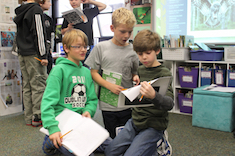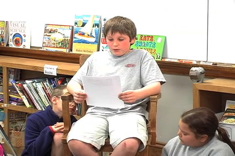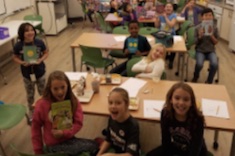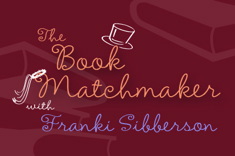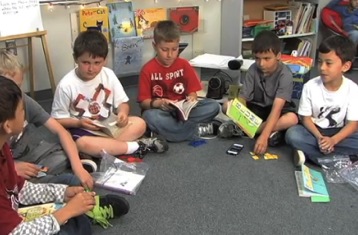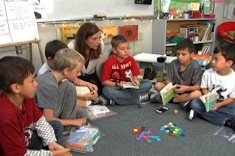At the beginning of each school year, I ask parents to complete a learning survey about their incoming fifth grader. One of the questions I ask is "What academic area would you like to see your child improve in?" Parents of boys will almost always answer by saying, “Good luck getting my son to write.” This past school year, I initiated a writing club for boys in hopes of empowering and engaging my boy writers.
Back in January, during a never-ending stretch of indoor-recess days, I walked up and down the hall monitoring the fifth-grade classrooms. As I stepped into my classroom, I saw a few boys huddled around a desk. Curious about what would capture the attention of this pack of boys, I noticed they were all reading a story that one of them had written. A few boys had been writing during recess. Writing during recess? As if Tom Newkirk were sitting on my shoulder, I asked, “Hey, you guys wanna start a writing club for dudes?”
“YES!” they responded in unison.
“You don’t mind missing part of your recess and lunch?” I asked, thinking this would be a deal-breaker.
“No way,” one boy replied. “The cafeteria is so loud, it’s hard to talk anyway.”
I revisited Tom Newkirk’s book Misreading Masculinity: Boys, Literacy and Popular Culture. When I first read this book, it changed how I view my classroom and literacy instruction. One particular passage has resonated with me over the years. Newkirk writes as follows:
In one sense, reading and writing represent the choice of language over physical action, the vicarious over the actual. But writing time often provides the most open space (outside of recess) in the curriculum—a space to enact fantasies of power, adventure and friendship. And as many boys claim, when they are writing these adventures, they feel themselves physically inside the stories. Rather than denying the physical needs of boys, writing can employ that energy—if we keep the space open for their play.
This led me to think about what many boys tell you is the best part of their school day: recess.
Writing is a recess of the mind.
For a boy, a blank page in his writer’s notebook has the potential to be seen as a vast playground waiting to be filled with action, adventure, and humor. Yet the writer’s notebook is often a daunting, cavernous place for many boy writers. After considering Newkirk’s words, I began to wonder if the blank page is a cold, desolate place for many boys because their writing choices are not valued. The topics that boys typically enjoy exploring (for example, war, weapons, good versus evil, absurd humor, parody, bathroom humor) are often rejected as being frivolous and silly. I thought this writing club should be a place where boy writers could tap in to their imaginations and play around with writing styles and craft.
News of the boys writing club spread quickly among the rest of the boys in my classroom, and it was decided that Fridays would be the day. At our first meeting, the boys decided the first order of business was to give the group a name. After some private reflection and careful consideration, the boys voted on D.A.W.G. (Dude Awesome Writing Gang). Since our classroom was usually busy with activity during indoor-recess days, we took over our literacy coach’s room down the hall. This writing space soon became known as the “Dawg House.”
Each time D.A.W.G. meets, the agenda is simple: share and discuss writing. The boys came up with a list of things that we could do during D.A.W.G. time. They even created an anchor chart titled “What do D.A.W.Gs do?”:
- Share a writing piece.
- Give each other feedback—Make sure to say stuff you like and don’t like.
- Mr. Jones reads a mentor text like Guy-Write or Knucklehead to help us with our writing.
- Create stories on the fly using Rory’s Story Cubes.
- Don’t laugh at something unless it’s supposed to be funny.
- Have fun!
The boys were free to share a piece of writing that they’ve worked on in class and to give feedback to others about parts they liked. I didn’t prepare learning targets. There were no minilessons. There were no anchor charts, except for the one they created. This was a club where the boys were writing and sharing just for fun.
During one session, Austin popped into the D.A.W.G. House and insisted that he got to read his writing before anyone else. I was a bit intrigued since Austin was one of my more reluctant writers. I asked him why he was so eager to share that day. Austin took a bite of his sandwich and said, “I want feedback on the introduction to my story I started last night at home. I’m writing a science fiction piece, and I started it just like Lauren Tarshis does all her books in the I Survived series. She always starts the book at the climax and then goes into flashback two or three days earlier. I did that too.” Austin’s quick description made me so proud. He was writing at home in preparation for writing club. He was discussing author’s craft. He was an avid reader of the I Survived series, and now he was trying to emulate it in his own writing. Austin was thinking and talking like a writer. I pointed this out to the boys, and we celebrated this milestone.
D.A.W.G. was also a chance for these boys to uncover the importance of feedback. At one particular meeting I won’t soon forget, Brandon shared a personal narrative about his first time on the Top Thrill Dragster roller coaster. He had decided to use a graphic novel format to tell his story. When Brandon finished sharing his work, he was met with the sound of crunching chips and slurping from juice boxes. This was not the feedback he was looking for. I noticed that Brandon was a bit discouraged at the lack of enthusiasm about his writing piece. So I asked him if there was a specific part of his narrative that he wanted us to comment on. He answered, “Not really, but did you guys like the part about me peeing in my pants at the top of the hill?” Some said that was hilarious, with one boy even calling it “brilliant.” Others agreed with Colton, who said, “Throwing up a little bit in your mouth would be way funnier.” And with that, the boys spent the next few minutes debating which bodily function symbolized a greater fear at the top of the roller coaster. Through this discussion, albeit a gross one, Brandon and the boys learned sometimes writers need to point out about which parts they want their writing partners to offer feedback.
Discussions about author’s craft, mentor texts, and feedback all regularly occur in our writing workshop. Yet, I think the reason these boys loved D.A.W.G. so much is that it offered a nonthreatening environment where they can share ideas, solicit feedback, and talk about their craft. The Dude Awesome Writing Gang provided these boys a chance to share their writing with other writers with similar tastes and styles. This experience has showed me that boys will enjoy reading and writing more if they are able to interact and be social. Boys love to collaborate and share their writing with their buddies, most often in hopes of making them laugh.
“Boy writer” does not have to be a paradox. I have found it can be a very real thing as long as my classroom has a culture that supports their writing interests and styles. My primary goals for this writing club were for my boy writers to
- feel comfortable writing for a nonthreatening audience,
- use writing as a way to connect and interact with each other,
- have more choice in writing topics and formats, and thus be more invested in their writing, and
- feel that their choices in topics and language were validated.
During their student-led conferences in March, most of the boys said D.A.W.G. was a highlight of the year so far because it was a chance for them to share their writing with other guys and hear what they had to say. I believe they don’t mind missing recess because they are already getting a chance to interact with other boys, have choice, and focus on the doing. Isn’t that what happens at recess anyway?

